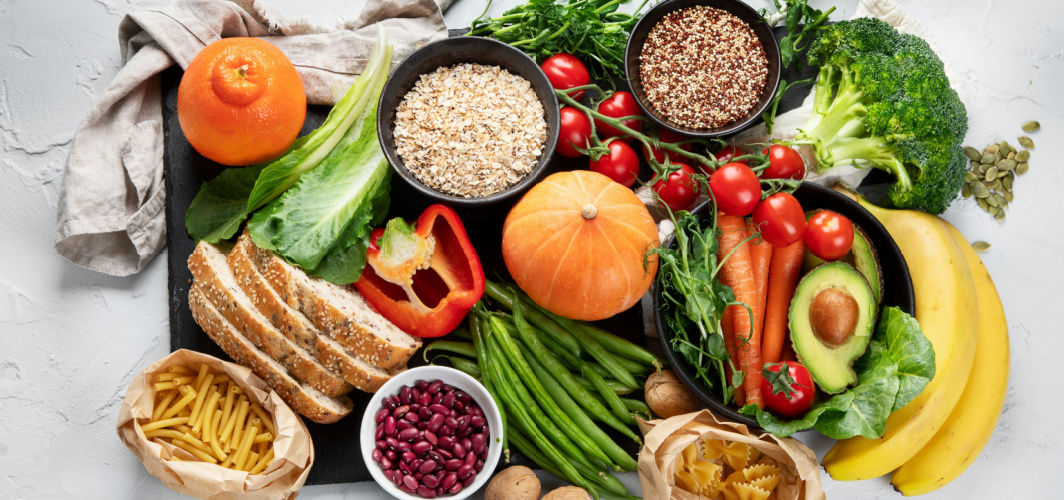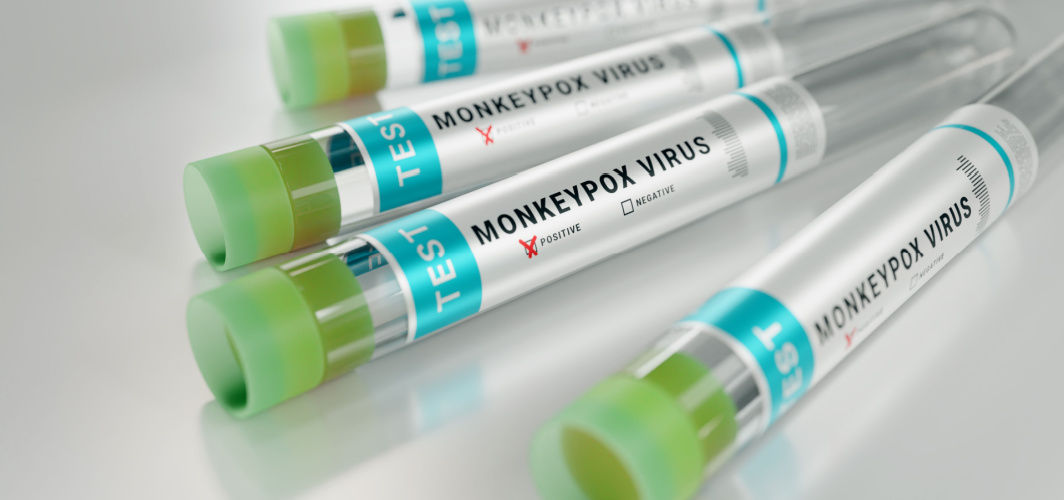General Health
10 High-Dietary Fiber Foods For A Healthy Lifestyle
11 min read
By Apollo Pharmacy, Published on - 15 September 2023
Share this article
0
0 like

Maintaining a healthy lifestyle is a priority for many of us, and one key component of this is ensuring an adequate intake of dietary fiber. Dietary fiber is a type of carbohydrate that our bodies cannot digest. Instead, it passes through the digestive system relatively intact, providing a range of health benefits. From aiding digestion to managing weight and promoting heart health, dietary fiber is an essential part of a well-balanced diet. Incorporating high fiber foods into your daily meals can be a simple yet effective way to boost your fiber intake. In this article, we will delve into a selection of 10 high dietary fiber foods that can empower you to embrace a healthier lifestyle.
What is Dietary Fiber?
Dietary fiber is the indigestible portion of plant-based foods that pass through our digestive system without being broken down. It comes in two forms:
- Soluble Fiber: Soluble fiber dissolves in water and forms a gel-like substance
- Insoluble Fiber: Insoluble fiber remains intact throughout digestion.
1. Role of Dietary Fiber in Digestion
Including high-fiber foods in your diet offers numerous health benefits.
- Fiber helps regulate bowel movements, preventing constipation and promoting regularity.
- It aids in weight management by making you feel fuller for longer, reducing the likelihood of overeating.
- Additionally, dietary fiber plays a crucial role in maintaining healthy blood sugar levels and lowering cholesterol levels.
2. Recommended Daily Intake of Dietary Fiber
The Indian Council of Medical Research (ICMR) recommends a daily intake of 25-30 grams of dietary fiber for adults. However, studies suggest that the average Indian consumes only half the recommended amount.
The Top 10 High-Dietary Fiber Foods
High dietary fiber foods are essential for digestive health and overall well-being. These foods can help you meet your daily fiber needs while enjoying a varied and satisfying diet.
1. Chickpeas
Chickpeas, also known as garbanzo beans, are a versatile and nutrient-rich legume that has been consumed for thousands of years in various cuisines around the world.
Fiber Content
Chickpeas are a nutrient-dense food that provides a multitude of health benefits. They are an excellent source of dietary fiber, with approximately 12.5 grams of fiber per cup.
Health Benefits of Chickpeas
Including chickpeas in your diet can have numerous health benefits.
- The high fiber content aids in digestion and promotes bowel regularity, reducing the risk of constipation.
- Additionally, the fiber in chickpeas helps regulate blood sugar levels and may lower the risk of developing type 2 diabetes.
- Chickpea flour can be used as a gluten-free alternative in baking.
2. Lentils
Lentils are a popular legume that is not only delicious but also packed with dietary fiber. They are not only affordable and easy to prepare but also a valuable addition to a balanced and health-conscious diet.
Fiber Content
Lentils contain a significant amount of dietary fiber. Just one cup of cooked lentils provides around 15 grams of fiber, which is more than half of the recommended daily intake for adults.
Health Benefits of Lentils
- Lentils are a great source of protein, making them an excellent option for vegetarians and vegans.
- They are also rich in essential minerals such as iron, potassium, and folate.
- Lentils are versatile and can be added to soups, stews, and salads, or made into delicious lentil patties or curries.
3. Oats
Oats are a dietary staple in many parts of the world and are enjoyed in various forms, including oatmeal, oat bran, and oat flour.
Fiber Content
With approximately 4 grams of fiber per serving, oats are a great way to boost your daily fiber intake.
Health Benefits of Oats
- One of the key benefits of oats is their ability to promote heart health. The soluble fiber in oats helps to lower cholesterol levels, which can reduce the risk of heart disease.
- Oats have a low glycemic index, meaning they can help regulate blood sugar levels and provide sustained energy throughout the day.
- They are also rich in vitamins, minerals, and antioxidants, making them a wholesome choice for overall health.
- Incorporating oats into your diet is easy. Start your day with a bowl of oatmeal topped with fresh fruits and nuts for a filling and nutritious breakfast. You can also use oats in baking, such as adding them to muffins or granola bars for an extra fiber boost.
4. Brown Rice
Brown rice is a nutritious whole grain that offers several health benefits, including being a great source of dietary fiber. With its outer bran layer intact, brown rice retains more fiber and nutrients compared to white rice.
Fiber Content
A half-cup serving of cooked brown rice contains approximately 2 grams of dietary fiber.
Health Benefits of Brown Rice
- The fiber in brown rice is mainly insoluble, which aids in digestion and helps prevent constipation.
- Brown rice is rich in essential vitamins and minerals such as magnesium, phosphorus, and B vitamins.
- They are also a good source of complex carbohydrates, which provide sustained energy.
5. Berries
Berries are a group of small, colourful, and delicious fruits that come in a wide variety of flavours and types. They are packed with essential nutrients and are low in calories, making them a perfect addition to any healthy diet.
Fiber Content
When it comes to fiber, berries are an excellent choice. For example, raspberries contain around 8 grams of fiber per cup, while blackberries provide approximately 7 grams of fiber per cup.
Health Benefits of Berries
- Berries are rich in antioxidants, vitamins, and minerals.
- They have a high water content, which adds to their overall nutritional value.
- You can add berries to your breakfast cereal or oatmeal, blend them into smoothies, or simply enjoy them as a standalone snack. They can also be used in baking or as toppings for yoghurt or salads.
6. Avocado
Avocados, scientifically known as Persea americana, are unique and highly nutritious fruits that have gained immense popularity in recent years due to their creamy texture, rich flavour, and numerous health benefits.
Fiber Content
When it comes to fiber content, avocados are impressive, providing approximately 7 grams of fiber per 100 grams.
Health benefits and ways to incorporate into the diet
Avocados are a great source of healthy monounsaturated fats. They are packed with essential nutrients such as:
They can be incorporated into diet as a substitute for butter or mayonnaise. Alternatively, you can make a creamy and healthy avocado smoothie by blending it with fruits and yoghurt.
7. Almonds
Almonds, scientifically known as Prunus dulcis, are among the most popular and nutritious tree nuts in the world. There are two primary types of almonds:
- Sweet almonds: Sweet almonds are the variety commonly consumed as a snack or used in cooking and baking.
- Bitter almonds: Bitter almonds are not typically eaten as they contain a toxic compound called amygdalin, which can release cyanide when consumed.
Fiber Content
Almonds are rich in healthy fats, protein, vitamins, and minerals. A 28-gram serving of almonds contains about 3.5 grams of dietary fiber, making it an excellent choice for boosting your fiber intake.
Health Benefits of Almonds
- Almonds are rich in healthy fats, protein, vitamins, and minerals.
- Almonds can be enjoyed in various ways. You can snack on them raw or roasted, add them to salads, cereals, or yoghurt for added crunch, or use them as a topping on desserts.
- Almond butter can be used as a healthy alternative to regular butter.
8. Chia Seeds
Chia seeds, scientifically known as Salvia hispanica, are small, nutrient-rich seeds that have gained immense popularity as a superfood in recent years.
Fiber Content
When it comes to fiber content, chia seeds are a powerhouse. 28 grams of chia seeds contain a whopping 10 grams of fiber, which is almost one-third of the recommended daily intake for adults.
Health Benefits of Chia Seeds
- Chia seeds promote healthy digestion by increasing stool frequency and softening the consistency, thereby preventing constipation.
- These tiny seeds are packed with nutrients like omega-3 fatty acids, protein, antioxidants, and minerals such as calcium and magnesium.
- The mild nutty flavour of chia seeds makes them versatile and easy to include in your daily meals. You can sprinkle them on top of yoghurt or cereal, add them to smoothies or baked goods, or even use them as an egg replacement in vegan recipes.
9. Sweet Potatoes
Sweet potatoes are known for their vibrant orange colour and sweet, earthy flavour. They are not only versatile in culinary applications but also offer a wealth of health benefits.
Fiber Content
Sweet potatoes are rich in dietary fiber, with an average of 3 grams per 100 grams.
Health Benefits of Sweet Potatoes
- Sweet potatoes are also low in calories and fat, making them a great choice for weight management.
- Additionally, sweet potatoes are a good source of vitamin A, vitamin C, potassium, and antioxidants.
- The antioxidants present in sweet potatoes have anti-inflammatory properties that may help reduce the risk of chronic diseases like heart disease and certain types of cancer.
- Sweet potatoes also have a low glycemic index, which means they don't cause spikes in blood sugar levels when consumed in moderation.
- Baked or roasted sweet potatoes make a delicious side dish or snack. You can also mash them and use them as a healthier alternative to regular mashed potatoes. Sweet potato fries or chips can be baked instead of fried for a healthier option.
10. Carrots
Carrots hold a special place in the culinary landscape of India. These vibrant root vegetables, known as "gajar" in Hindi, are not only cherished for their sweet and earthy flavour but also deeply rooted in Indian cuisine and culture.
Fiber Content
Carrots provide about 2.8 grams of fiber per medium-sized carrot, making them a good source of dietary fiber.
Health Benefits of Carrots
- Carrots are low in calories and packed with essential vitamins and minerals. They are particularly rich in beta-carotene, which the body converts into vitamin A.
- The vitamins and antioxidants in carrots can contribute to healthy and glowing skin. Beta-carotene, in particular, may help protect the skin from UV damage and improve its overall appearance.
- There are several ways to include carrots in your diet. You can enjoy them raw as a crunchy snack or add them to salads for an extra crunch. Carrots can also be steamed, boiled, or roasted as a side dish or used in soups and stews for added flavour and nutrition.
How to Incorporate High-fiber Foods into Your Daily Diet?
Incorporating high-fiber foods into your daily diet can have numerous health benefits.
1. Tips for Adding High-fiber Foods to Meals
Here are some tips for adding high-fiber foods to your meals:
- Start with breakfast: Add high-fiber cereals or oats to your morning routine. You can also incorporate fruits like berries or bananas for an extra fiber boost.
- Choose whole grains: Opt for whole-grain bread, pasta, and rice instead of their refined counterparts. These provide more fiber and nutrients.
- Load up on veggies: Include a variety of vegetables in your meals, as they are excellent sources of fiber. Incorporate them into salads, stir-fries, and soups.
- Legumes for fiber: Beans, lentils, and chickpeas are not only rich in protein but also high in fiber. Use them in stews, curries, or as a meat substitute in dishes.
2. How to Ensure Adequate Hydration
Adequate hydration is crucial when consuming high-fiber foods to prevent constipation, gas, and bloating. Here's how you can ensure adequate hydration:
- Drink plenty of water throughout the day. Aim for at least 8-10 glasses.
- Include hydrating foods like watermelon, cucumber, and oranges in your diet.
- Limit the consumption of dehydrating beverages like caffeinated drinks and alcohol.
- Avoid excessive salt intake, as it can lead to fluid retention.
Conclusion
In conclusion, incorporating high dietary fiber foods into your daily meals can have a significant impact on your overall health. Keep in mind that making small, sustainable changes towards a fiber-rich lifestyle is crucial for long-term success. Start by adding one or two high-fiber foods to your meals and gradually increase your intake. Remember to drink plenty of water to promote proper digestion. Apart from having these fibrous foods, you may also explore products that may help you ensure optimal digestive health.
FAQs
Q. How much dietary fiber should I consume daily?
The recommended daily intake of dietary fiber is 25 grams for women and 38 grams for men.
Q. Can I rely on supplements instead of high-fiber foods?
It's best to obtain dietary fiber from natural food sources rather than relying solely on supplements.
Q. Are there any side effects of consuming too much fiber?
Consuming excessive amounts of fiber can lead to bloating, gas, and diarrhoea. It's important to increase fiber intake gradually.
Q. Can high-fiber foods help with weight management?
Yes, high-fiber foods can promote feelings of fullness and aid in weight management by reducing overeating.
Q. How can I incorporate more fiber into my diet?
Start by adding more fruits, vegetables, whole grains, and legumes to your meals. Gradually increase your fiber intake over time.
General Health
Leave Comment
Recommended for you

General Health
Could Tonsilitis Be Causing That Sore Throat?
Tonsillitis either occurs due to infection by viruses or bacteria. Up to 70% of the cases of tonsillitis are caused by viruses that cause infections such as cold or flu.

General Health
Monkeypox: Symptoms, Cause, Diagnosis, Treatment, Prevention
Know more about the causes, symptoms, and treatment options for monkeypox. Understand the need for early diagnosis and ways to prevent the infection.

General Health
Is Drinking Ice-Cold Water Bad For Your Health?
Both cold and warm water can keep you hydrated and promote digestion, with no conclusive evidence to suggest that cold water is bad for the body. Read to know more.
Subscribe
Sign up for our free Health Library Daily Newsletter
Get doctor-approved health tips, news, and more.
Visual Stories

Plant-based Foods That Are a Great Source of Iron
Tap to continue exploring
Recommended for you

General Health
Could Tonsilitis Be Causing That Sore Throat?
Tonsillitis either occurs due to infection by viruses or bacteria. Up to 70% of the cases of tonsillitis are caused by viruses that cause infections such as cold or flu.

General Health
Monkeypox: Symptoms, Cause, Diagnosis, Treatment, Prevention
Know more about the causes, symptoms, and treatment options for monkeypox. Understand the need for early diagnosis and ways to prevent the infection.

General Health
Is Drinking Ice-Cold Water Bad For Your Health?
Both cold and warm water can keep you hydrated and promote digestion, with no conclusive evidence to suggest that cold water is bad for the body. Read to know more.